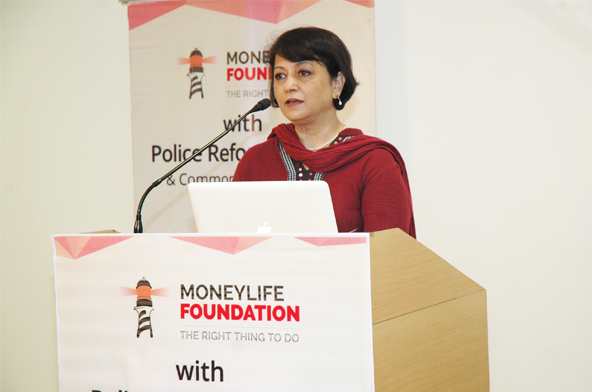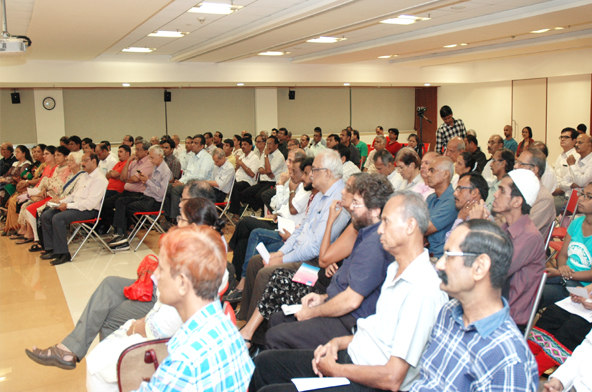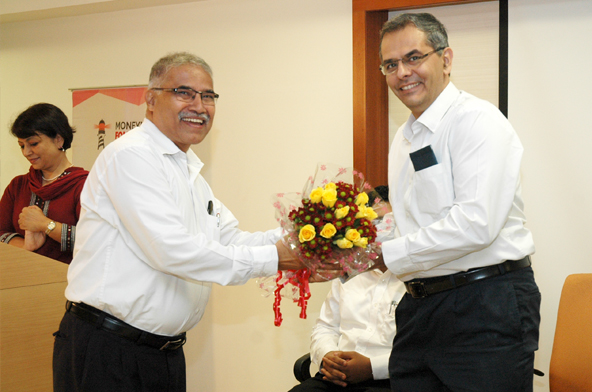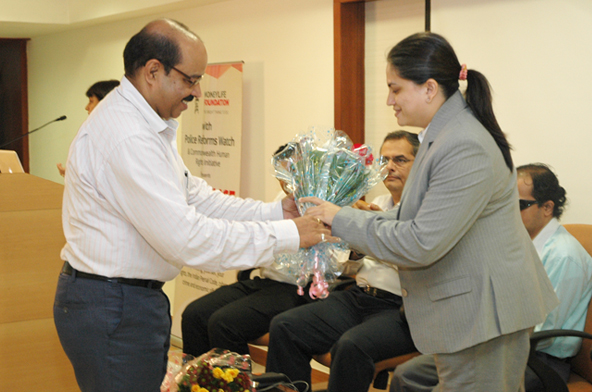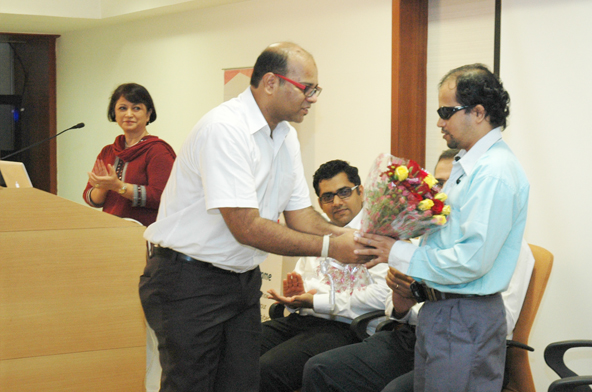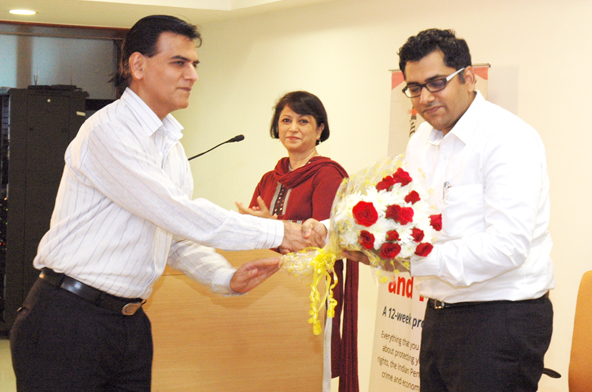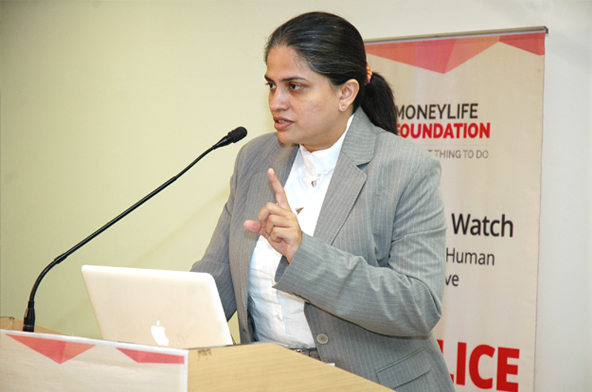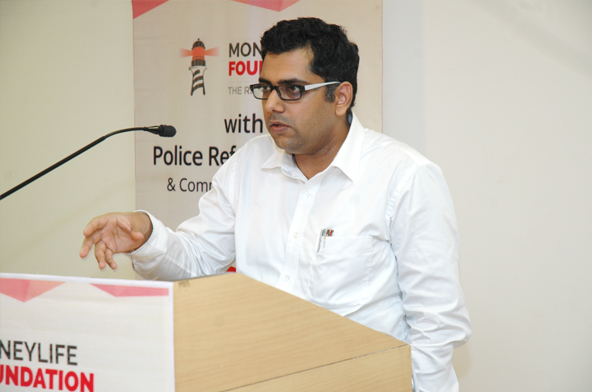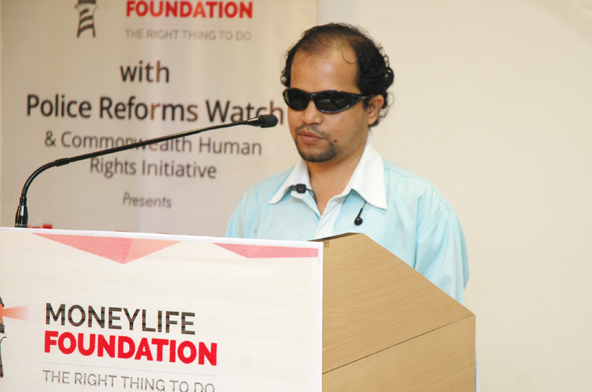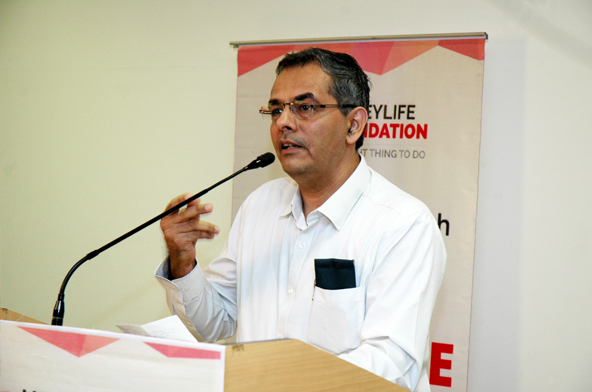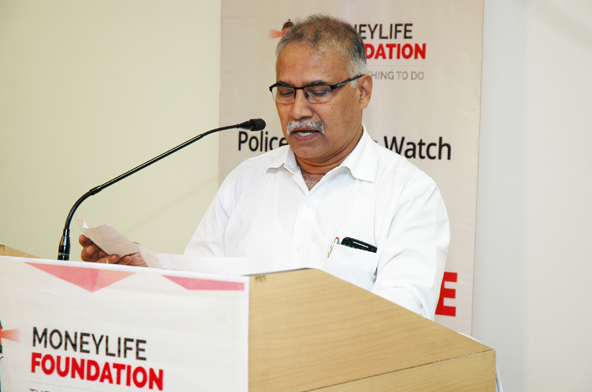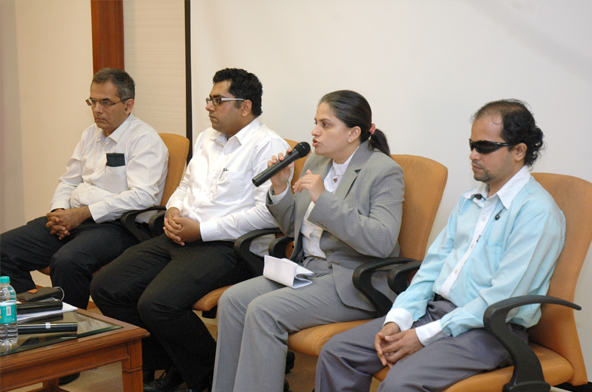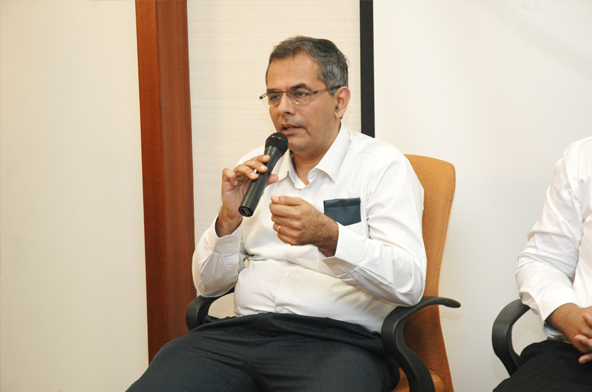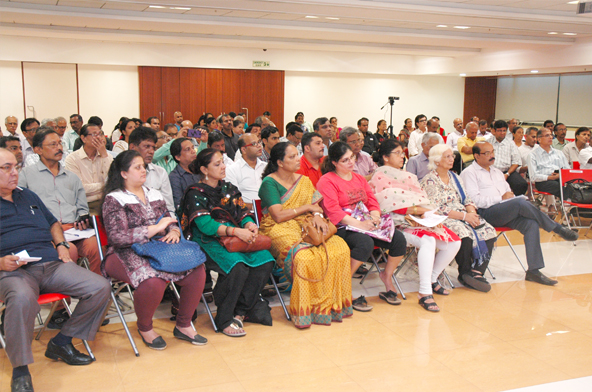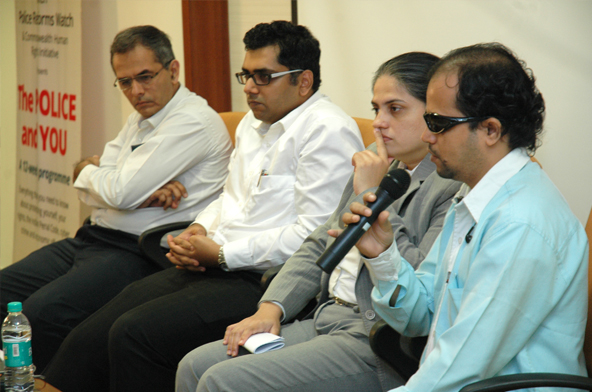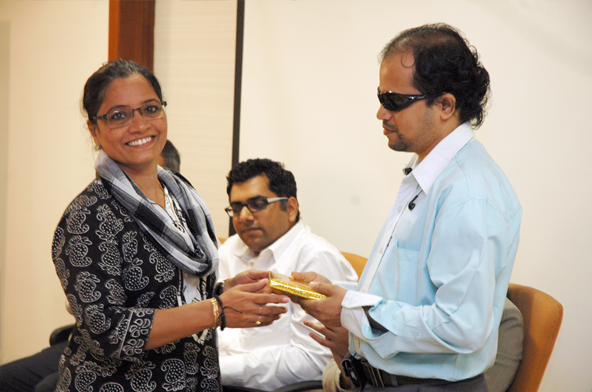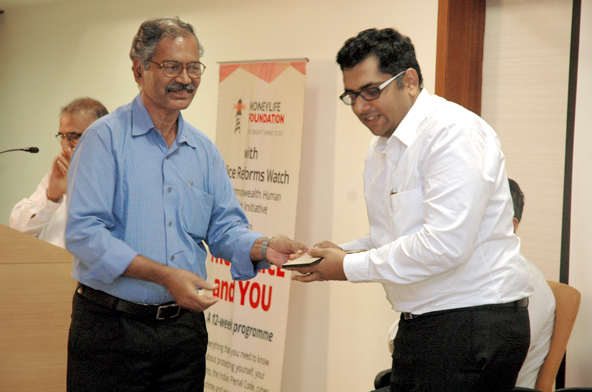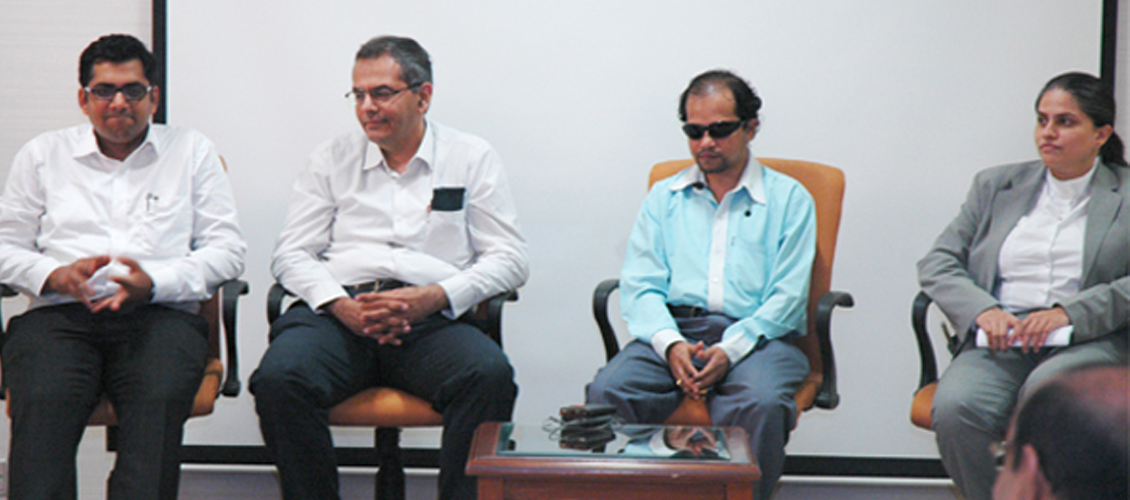
“The judicial system is improving considerably in India. Of course, taking every issue to the courts is not the solution and the administration has to do it’s job properly. However, today in India, the common man is at least able to approach the courts, unlike some developing countries,” says Advocate Jamshed Mistry. He was speaking at the tenth session under the “Police & You” series.
Moneylife Foundation with Police Reforms Watch and support from Saraswat Bank have launched the 12-week program (every Wednesday) that aims to spread knowledge about protecting yourself, your rights, the Indian Penal Code (IPC), cybercrime and economic offences. This was the eleventh such session.
The event was held in the well-appointed auditorium of Saraswat Bank headquarters, Eknath Thakur Bhavan.
The eleventh session of the 12-week series on “The Police & You- Legal Aid-what you need to know about it” was conducted by Adv Mistry, Adv Laxmi Maria Jenkins, activist Raju Waghmare and Adv Rajeev Ravi. All the speakers provided guidance on Right to Legal Aid, who is eligible for free legal aid, how one can request for legal aid and who receives it.
Adv Jenkins, who handles litigation and non-litigation legal services, and has appeared as a lawyer for those requiring legal aid, explained various aspects of legal aid. She said, Article 39A of the Constitution of India provides for free legal aid to the poor and weaker sections of the society and ensures justice for all. In every State, a State Legal Services Authority and in every High Court, a High Court Legal Services Committee has been constituted. District Legal Services Authorities and Taluka Legal Services Committees have been constituted in the Districts and most of the Talukas in order to give effect to the policies and directions of the National Legal Services Authority (NALSA) and to provide free legal services to the people and conduct Lok Adalats in the State.
“There is no court fee and even if the case is already filed in the regular court, the fee paid will be refunded if the dispute is settled at the Lok Adalat. There is no strict application of the procedural laws and the Evidence Act while assessing the merits of the claim by the Lok Adalat. The parties can interact with the Lok Adalat judge directly and explain their stand in the dispute and the reasons therefore, which is not possible in a regular court of law. Disputes can be brought before the Lok Adalat directly instead of going to a regular court first and then to the Lok Adalat. Decision of the Lok Adalat is binding on the parties to the dispute and its order is capable of execution through legal process. No appeal lies against the order of the Lok Adalat,” she said.
The free legal services include, payment of court fee, process fees and all other charges payable or incurred in connection with any legal proceedings; providing advocate in legal proceedings; obtaining and supply of certified copies of orders and other documents in legal proceedings; preparation of appeal, paper book including printing and translation of documents in legal proceedings.
Women and children, members of scheduled cast or tribe (SC/ST); industrial workmen; victims of mass disaster; violence, flood, drought, earthquake, industrial disaster; disabled persons; persons in custody; persons whose annual income does not exceed Rs50,000 and victims of trafficking in human beings are eligible for receiving free legal services from NALSA, Adv Ravi said.
Explaining the procedure followed while providing legal aid, Adv Ravi said, after examining the eligibility criteria of an applicant and the existence of a prima facie case in favour, the Legal Services Authorities provide the person counsel at State expense, pay the required court fee in the matter and bear all incidental expenses in connection with the case. The person to whom legal aid is provided is not called upon to spend anything on the litigation once it is supported by a Legal Services Authority, he added.
Mr Waghmare, an activist working for the betterment of disabled people through workshops, helping government draft policies and filing public interest litigations (PILs), says, “There are some organizations, which help people with disabilities in legal matters like health, women or human rights issue. Some even help in filing public interest litigations (PILs)”.
Talking about providing legal help to people with multiple sclerosis, Mr Waghmare says, “The person has to obtain a certificate from the doctor, especially from a district Civil hospital. For Mumbai, it is the JJ Hospital. With the certificate, the person can write to the authorities. While free legal help depends upon the disability, there are certain non-government organizations that are providing such help.”
Disabled Indians are treated as second-class citizens and are forced to confront segregation, discrimination, barriers and stereotypes. An entire range of disability issues — such as the causes of disability, care, rehabilitation, empowerment, mainstreaming through education, employment, health care, and transportation – wait to be practically resolved.
According to recent Census data, the number of disabled population has increased by 22.4% between 2001 and 2011. During this period, the number of disabled rose to 2.68 crore in 2011 with 1.5 crore males and 1.18 crore females, from 2.19 crore 10 years ago. Most of the disabled are those with movement disability. According to the census, 20.3% of the disabled are movement disabled followed by hearing impaired (18.9%) and visually impaired (18.8%). Nearly 5.6% of the disabled population is mentally challenged, a classification introduced in the 2011 census shows.
The final session of this 12-week series will be held on Saturday, 1 October 2016 at 3.30pm to 6pm. This will be session on “Anti-Corruption Bureau: How it functions?” Dr Pradnya Saravade, Maharashtra’s Additional Director General of Police (Administration), who also headed the state ACB will be the Chief Guest at the event. She will also handout participatory certificates to those who attended all 12 programs in this Series.


